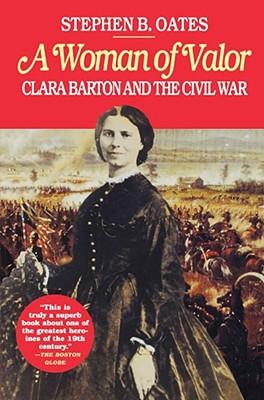By the summer of 1862, with no institutional affiliation or official government appointment, but impelled by a sense of duty and a need to heal, she made her way to the front lines and the heat of battle. Oates tells the dramatic story of this woman who gave the world a new definition of courage, supplying medical relief to the wounded at some of the most famous battles of the war -- including Second Bull Run, Antietam, Fredericksburg, Battery Wagner, the Wilderness, Spotsylvania, and Petersburg. Under fire with only her will as a shield, she worked while ankle deep in gore, in hellish makeshift battlefield hospitals -- a bullet-riddled farmhouse, a crumbling mansion, a windblown tent. Committed to healing soldiers' spirits as well as their bodies, she served not only as nurse and relief worker, but as surrogate mother, sister, wife, or sweetheart to thousands of sick, wounded, and dying men.
Her contribution to the Union was incalculable and unique. It also became the defining event in Barton's life, giving her the opportunity as a woman to reach out for a new role and to define a new profession. Nursing, regarded as a menial service before the war, became a trained, paid occupation after the conflict. Although Barton went on to become the founder and first president of the Red Cross, the accomplishment for which she is best known, A Woman of Valor convinces us that her experience on the killing fields of the Civil War was her most extraordinary achievement.
